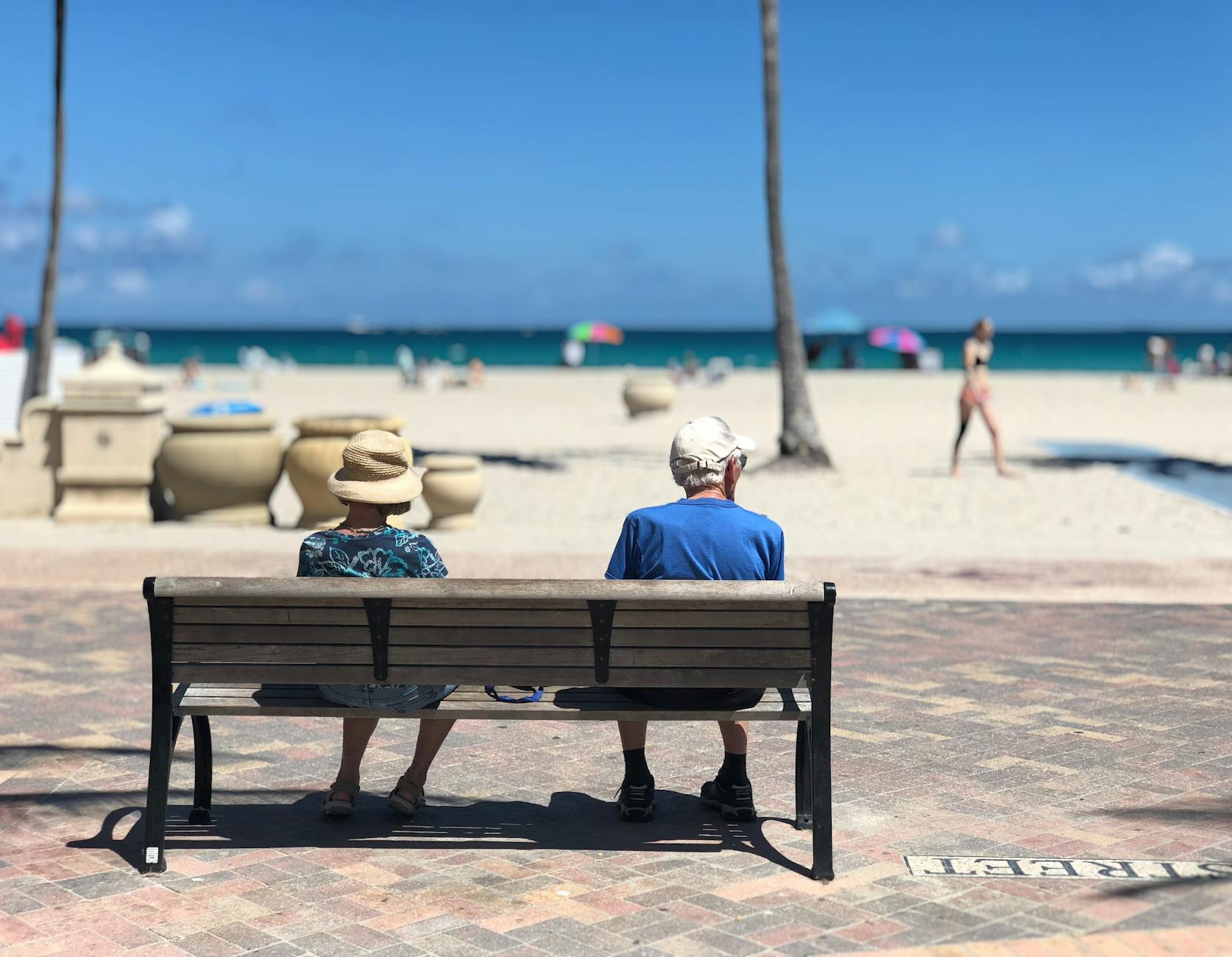Understanding the Retirement Transition

Retirement is a process, not a point in time. Those who prepare mentally, socially, emotionally, and financially are more likely to thrive.” For many, it brings freedom, time, and the opportunity to reflect, travel, volunteer, or reconnect with passion projects. For others, retirement can feel disorienting, lonely, or financially stressful. Science shows that retirement impacts every dimension of wellbeing, and how one adapts depends on preparation, mindset, and support.
According to the World Health Organization and United Nations projections, the global population aged 60 years and older is expected to more than double by 2050, rising from approximately 1.1 billion in 2020 to about 2.1 billion by mid‑centur
According to Stats SA’s 2024 mid‑year estimates, approximately 5.5 million people in South Africa are aged 60 or older, representing about 9 percent of the total population
Only about 6% of South Africans are on track to retire comfortably, and the vast majority rely on external support. According to the 2023 Retirement Reality Report, just 6% of the population is adequately prepared for a comfortable retirement, with over 90% depending on children, family, or government support to make ends meet in older age fsca.co.za+3bwm.co.za+3saflii.org+3.
Important Considerations:
- Lack of purpose and social interaction post-retirement is strongly linked to cognitive decline, depression, and poor physical health.
- Retirees who engage in continuous learning, volunteer work, part-time roles, and creative hobbies report better mental and emotional well-being.
The Science of Healthy Ageing
- As we age, biological, emotional, and cognitive changes are inevitable. However, science confirms that the right lifestyle choices can slow aging, reduce disease risk, and improve quality of life.
Key Science-Based Health Priorities
Staying healthy isn’t just about avoiding illness—it’s about building daily habits that protect your body, mind, and emotional well-being. Research highlights five core priorities:
🏃♀️ Physical Activity
- Regular movement improves brain function, muscle strength, bone density, and emotional balance.
- According to Harvard Health, just 20–30 minutes of brisk walking daily lowers heart disease risk by ~30%.
- Benefits: better circulation, lower blood pressure, weight management, and reduced risk of chronic disease.
🧠 Cognitive Stimulation
- Activities like puzzles, reading, learning languages, or new skills help keep the brain sharp.
- The Lancet Commission (2020) found active mental engagement can reduce Alzheimer’s risk by up to 33%
🤝 Social Connection
- Loneliness increases mortality risk by 45%—higher than obesity or smoking (Holt-Lunstad, 2015).
- Deep, supportive relationships act as a protective factor for both mental and physical health.
🥗 Anti-Inflammatory Diet
- Focus on whole foods: vegetables, berries, fish, olive oil, nuts.
- Reduces inflammation, boosts immunity, stabilizes energy, and supports long-term vitality.
😴 Sleep
- 7–9 hours per night is critical for:
- Cellular repair 🩹
- Memory consolidation
- Emotional regulation
Small daily actions—walking, eating whole foods, prioritizing sleep, challenging your brain, and nurturing connections—compound into lifelong health and resilience.
Chronic Disease Risk in SA (60+):
- 65% live with hypertension
- 25% have type 2 diabetes
- 35% show signs of early cognitive decline
- 40% have poor oral and gum health, affecting digestion and heart health
“It’s never too late to build healthy habits. Even at 80, a shift in diet, sleep, movement, and mindset can add years to life and life to years.” TWC
Retirement-Related Mental Health Challenges:
- Loss of Identity: Leaving a job role often means losing structure, purpose, and self-worth.
- Isolation & Loneliness: As friends move, pass away, or children grow distant, retirees may feel disconnected.
- Anxiety About Aging: Fear of illness, memory loss, being a burden, or outliving savings.
- Depression: Common in retirees, especially those with chronic pain or lacking social support.
“Aging is not a disease. It’s a stage of wisdom, contribution, and reflection. Emotional well-being in this phase requires intention, support, and inner work.”
(Dr. Dan Siegel, Clinical Professor of Psychiatry)
Financial & Lifestyle Health in Retirement
Retirement is a time of adjustment. Financial habits, daily routines, and priorities must shift to maintain stability and well-being.
Financial Realities in South Africa:
It is evident that a significant portion of South African retirees depend on a combination of state pension, family support, and potentially casual jobs to meet their financial needs in retirement.
Rising healthcare, food, and transport costs have left many vulnerable.
Psychology of Financial Stress:
Constant worry about money in retirement increases cortisol, weakens the immune system, and raises the risk of dementia.

How TransformationWithin Supports the Golden Years
At TransformationWithin Coaching Center, we deeply honor the wisdom, challenges, and potential of the golden years. Retirement is more than stepping away from work—it’s a spiritual, emotional, physical, and social transition. Our programs are designed to nurture balance, purpose, and peace.
🧠 Mental & Emotional Support
- Online programs & on-demand videos to adjust to retirement, identity shifts, grief, loneliness, and anxiety
- Therapeutic self-discovery sessions to rebuild purpose and inner peace
- Courses on legacy, emotional healing, and finding meaning in the golden years
- Health & wellness programs: gentle detox, anti-inflammatory meal plans
- Joint & bone health protocols, plus memory, blood pressure, diabetes, and heart support guides
🌿 Dignified Aging & Spiritual Growth
- Journaling practices for legacy, forgiveness, and family healing
- Guided inner work sessions to explore regrets, mortality, and fulfillment
- Mindfulness techniques to bring daily joy and emotional regulation
- Affordable nutrition guides tailored for SASSA pensioners
🧩 Brain Health & Memory Boosting
- Science-based strategies to improve focus, recall, mood & sleep
- Education on brain-nourishing nutrition and movement
“The golden years are not about fading away. They’re about becoming who you truly are—with peace, clarity, and grace.” — TWC
Science-Backed Lifestyle Adjustments
Living with balance isn’t just about health or money—it’s about designing a lifestyle that feels lighter, meaningful, and sustainable.
🏡 Simplify & Downsize
- Reduce financial + emotional burden by choosing a space that fits your needs, not society’s expectations.
- Minimalism = more freedom, less stress.
🏃 Daily Movement Rituals
- Gentle routines (walking, stretching, light strength work) keep mobility, independence, and energy strong.
- Movement is medicine at every age.
📅 Weekly Structure
- Blend routine, hobbies, social connection, and rest into your week.
- Helps regulate mood, boost productivity, and prevent isolation.
💼 Learn New Income Skills
- Explore small side opportunities like crafts, tutoring, or part-time online work.
- Builds confidence, financial flexibility, and purpose.
📖 Legacy & Meaning
- Reinvest in storytelling, wisdom-sharing, or creating memory books.
- Leaves a lasting gift for loved ones and strengthens self-worth.
“Freedom in retirement is not just about money, it’s about mindset, meaning, and maintaining a sense of control.” — TWC
Our Programmes
Our coaches provide comprehensive interventional support for students through both group and individual program options.
Get In Touch
Reach out to learn more about how we can help, or if you have any questions or concerns
